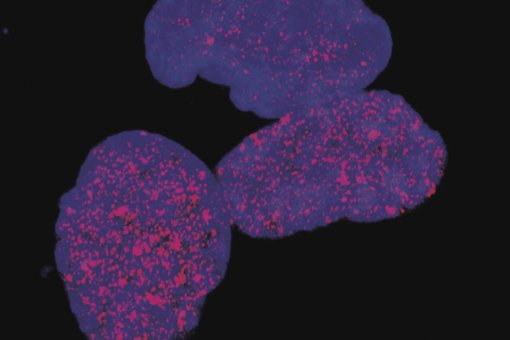Images
Contact

Genome Research has just published the results of a study led by researchers at the Barcelona Centre for International Health Research(CRESIB) revealing a hitherto unknown mechanism that enables the malaria parasite Plasmodium falciparum to adapt to common fluctuations in its environment. A substantial part of the research was also carried out at the Institute for Research in Biomedicine (IRB Barcelona) and the Nanyang Technological University (Singapore).
The authors of the article have shown how, in a genetically homogeneous population of P falciparum parasites, each parasite is different. Using new highly accurate methods of analysis, the scientists discovered that more than 5% of the genes expressed in some parasites are repressed or silenced in other, genetically identical, parasites. Depending on which genes it uses or expresses, each parasite will be able to adapt to specific changes in its environment.
This means that, in any population of P falciparum, some parasites are spontaneously pre-adapted to the fluctuations commonly found in their environment, such as changes in the immune or metabolic conditions of the human host (eg malnutrition), the episodes of fever typical of malaria, the presence of antimalarial drugs, and the presence or absence of competition from other parasites. The mechanisms that mediate this spontaneous adaptation are epigenetic.
Written by: ISGlobal
Article in Genome Research: http://genome.cshlp.org/content/early/2012/03/13/gr.129692.111
About IRB Barcelona
The Institute for Research in Biomedicine (IRB Barcelona) pursues a society free of disease. To this end, it conducts multidisciplinary research of excellence to cure cancer and other diseases linked to ageing. It establishes technology transfer agreements with the pharmaceutical industry and major hospitals to bring research results closer to society, and organises a range of science outreach activities to engage the public in an open dialogue. IRB Barcelona is an international centre that hosts 400 researchers and more than 30 nationalities. Recognised as a Severo Ochoa Centre of Excellence since 2011, IRB Barcelona is a CERCA centre and member of the Barcelona Institute of Science and Technology (BIST).




